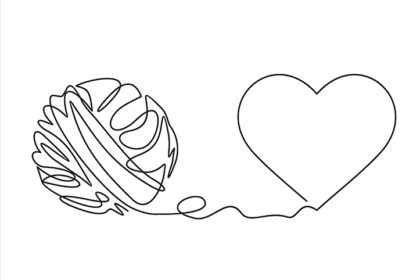Gaslighting is a term that gets thrown around a lot and is often misused. It’s a buzzword, and people are desensitized to it now. Anytime someone doesn’t agree with someone else or remembers things differently, they try to accuse the other person of gaslighting them… Whether that person is or is not gaslighting them is typically irrelevant.
Understanding what is gaslighting and what isn’t is important so we can spot when it’s happening and shut it down properly.
What IS gaslighting
The term “gaslighting” dates back to a play from 1938 titled Gas Light. The subsequent 1944 movie Gaslight, shortened to one word, features a man who tries to confuse his wife by making their gas lights flicker. When she asks why they are flickering, he denies that they and calls her crazy.
In general, gaslighting is a type of manipulation used most commonly in romantic relationships. That doesn’t mean it can’t happen between friends, family, and even strangers too. For a more in-depth explanation, check out our blog about the concept and how harmful it is here.
Examples of gaslighting include:
- “You’re overreacting.”
- “Don’t be so sensitive.”
- “It was just a joke. Calm down.”
- “You’re crazy. That didn’t happen.”
The biggest difference between gaslighting and other forms of manipulation is that a gaslighter will deny the truth of what happened entirely. They will subtly make you question yourself until you doubt what your mind is telling you. When you doubt yourself, they will insert their own version of what happened to overwrite your experience.
It all sounds very nefarious and obvious, but the truth is gaslighting can be really hard to detect. Most of the time, it won’t be obvious, and you may not even know it’s happening until it’s happened 10, 20, or even 50 times. You might need an outsider to point it out because you’ve grown so used to doubting yourself and your intuition.
What IS NOT gaslighting
Just because someone disagrees with you about things that happened, they get too defensive or call your feelings into question; they aren’t necessarily gaslighting you. With gaslighting, there is intentionality. They don’t want you to be right; they do want you to feel like less than them and confuse you.
Examples that are not gaslighting:
- “You’re better [or smarter] than that.”
- “It’s like you don’t even care.”
- “If you really cared about me, you would…”
- “I never said that.”
I’m not saying these phrases can’t be used to manipulate someone, but 9 times out of 10, they are not gaslighting. That doesn’t mean the person saying them isn’t trying to manipulate you, and it doesn’t mean they’re right about whatever point they’re trying to make either.
People are allowed to disagree, and they’re also allowed to get defensive and wonder how you feel about them. Having those thoughts and emotions are fine, and it becomes a problem when they try to use those things against you.
Even if they try to convince you of something you don’t believe happened, it doesn’t necessarily mean they’re gaslighting you. They could genuinely believe what they’re saying. Maybe they were told something different, or they don’t remember it that way, but without the intention to confuse or manipulate you, it is not gaslighting.
No one’s memory is 100% accurate, and before jumping to conclusions about someone’s intentions, just remember that. If something is off about what they’re saying, listen to your gut, but if you aren’t sure, maybe try to give them the benefit of the doubt.
In my own experience, I know I don’t remember tons of the things I’ve said. My Facebook memories are a testament to that (and a cringe one at that). So when I don’t remember saying something someone tells me I did, I usually try to ask for context to jog my memory. Remembering the conversation may help trigger that forgotten memory or at least help you understand why you may have said whatever it was.
Gaslighting is NOT a catch-all
Basically, I’m trying to say that “gaslighting” has become a synonym for manipulation. It’s so overused that many people don’t understand what it means anymore.
When the term is thrown around incorrectly, it desensitizes us to the seriousness of the situation. It also muddies the water for people trying to figure out if it’s happening to them. It may make it harder for people to correctly identify gaslighting. Inversely it can make it easier for people to identify it incorrectly.
Incorrectly accusing someone of gaslighting can also halt open communication between people. Depending on how it is used, accusing someone of being the gaslighter can even be a form of gaslighting.
It’s important to remember what is and is not gaslighting. There is intention in gaslighting that people often conveniently ignore. Using the term correctly helps everyone understand what it is and how to spot it too.
If you have a hard time talking with someone, try checking out our series on communication styles.
Did you know where the term “gaslighting” came from?





I had an ex that would gaslight gaslighting. Like, I know it was mostly a communication issue (coupled with their self destructive self sabotage tendencies), but whenever I had to recall or give deeper context to an event the moment it didnt line up with their reasoning or recollection they would assert their reasoning of it was the only possible one and anything else was just a clever ruse. And god forbid I make a cogent argument explaining step by step, in detail, everything, including minor events in the surroundings or points of fact, painting by numbers how my experience and reasoning of the situation lead me to the experience and conceptualization of it….well….they just might have to reevaluate their view of it too! THE ABSOLUTE HORROR!!! Having a secondary experience to consider, then having it laid out to be iterated over and discussed….openly…. ERMUHGURD STAHP GASLIGHTING ME!!!
If there is one bit of advice I can offer anyone when it comes to relationships its make sure to not go out with someone whos presumptions conflict with your own. There needs to be some commonality with how you two view the world, even if those views are different they shouldn’t directly conflict.
Oh, and also dont be a prejudicial narrow minded hipster hiding behind ultra [lefty…righty…. (sigh) ultimately they’re both the same in the end. Fight me] ideals without once putting the slightest thought into sustainable actionable change that works in the real world where people will attempt to exploit whatever they can, and what your response will need to be when that happens, preferably without the cotton candy clouds and unicorn fart scented rose tinted glasses view of only your little slice of experience with the tiniest sliver of humanity, mainly the be a good anxiety ridden child and do as you’re told, stay in line say thank you to the nice person OR THEY WILL TELL EVERYONE HOW AWKWARD YOU EAT YOUR LUNCH! NOW GET IN YOUR CRY CLOSET, YOURE NOT UN-NORMAL ENOUGH TO BE LOVED!!! types….and finally do try to not assume everything that talks with a southern twang and uses word play is a cleverly disguised moron you are justified in looking down upon and being dismissive of their ideas simply because they came out if their mouth, then play the ‘I said I’m sorry therefore I’m a good person now’ pseudo-meditative new age yuppy kibble to mindlessly, soullessly, and callously absolve yourself of the damage you have done…….that isn’t your call to make.
Yeah, dont do any of that….it makes you a terrible person regardless of what you may have tricked yourself into believing this week…. Because deep down, ignore it all you like, you know you’re still the same old rotting Potato.
….. But I’m not bitter.